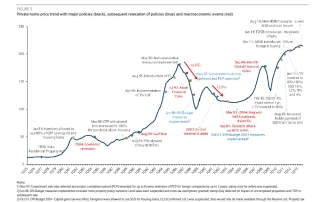Revised HDB Resale Procedure
Mr Khaw Boon Wan, Minister for National Development has announced today in Parliament changes in some processes in the sale and purchase of HDB resale flats. HDB has also issued a press release to provide the details. To improve the long term stability of the HDB resale market, the following changes have been made with effect from 10 Mar 2014, 5.00 pm: · HDB will publish daily prices of resale transactions as soon as they are registered (instead of fortnightly after the resale transactions are approved). This will allow flat buyers and sellers to negotiate based on recent transaction prices and reduce the focus on cash-over-valuation (COV) in negotiation. · To encourage buyers and sellers to focus on the sum total of flat price, HDB will only accept valuation requests from resale flat buyers (or their appointed salesperson), after the buyers have been granted an Option to Purchase (OTP) by flat sellers. · To help buyers and sellers in this transition, HDB will continue to honour OTPs and valuation reports which were granted before the implementation date and have not expired. Under the new rules, buyers who are granted OTP will also have 21 calendar days, instead of 14 calendar days to exercise the OTP, to adjust to the new procedure. Will the new procedure introduce a new problem? Only time will tell.. Right now, buyers are afraid to put in $1000 for the OTP, they might just try their "luck" for a $1 OTP in case the valuation turns out to be lower than the agreed price. There might be many buyers backing out of the deals once valuation is out.. is this a healthy sign where your COV depends on the valuer?



